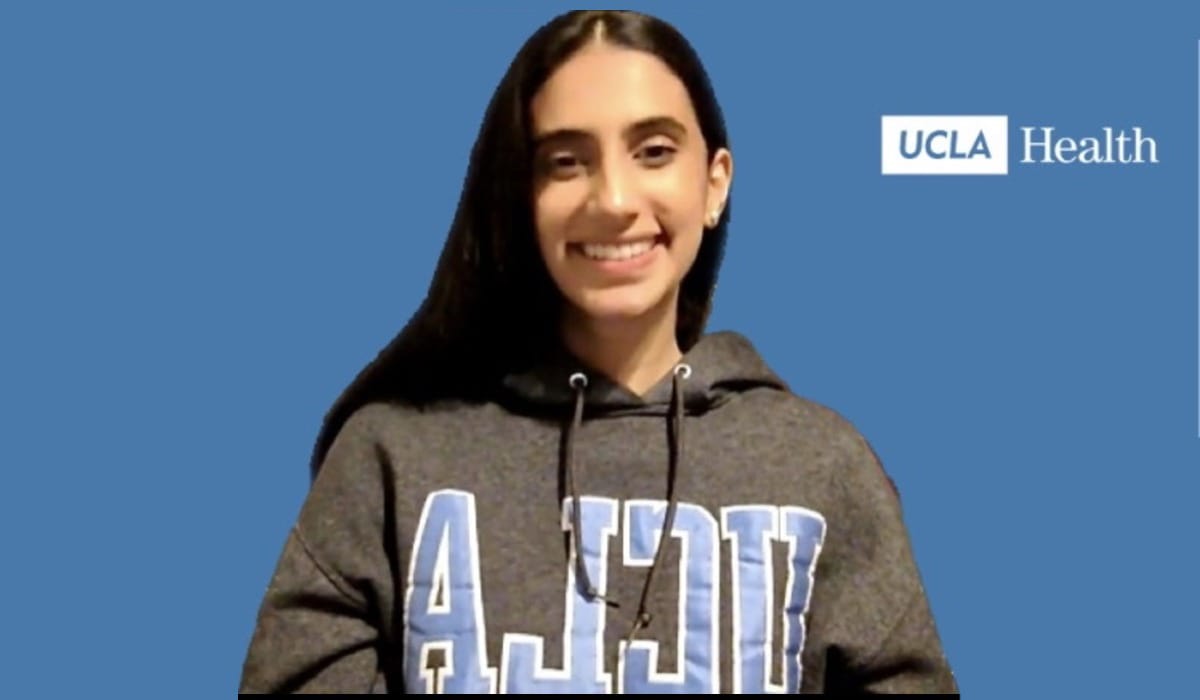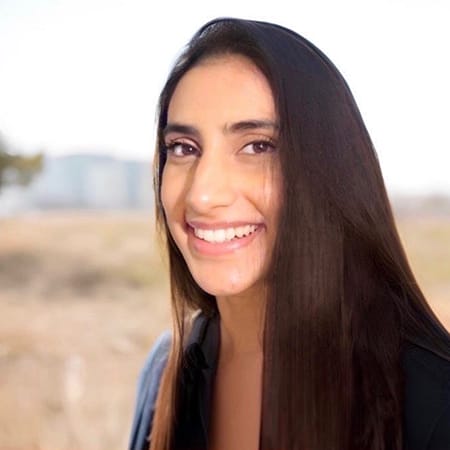Empowering Young Adults with Autism to Enter the Workforce

Meet Daily Point of Light Award honoree Anushka Chauhan. Read her story, and nominate an outstanding volunteer or family as a Daily Point of Light.
Anushka Chauhan locked down her passion and interest in education at a young age. When her parents moved the family from India to the United States in 2002, it was in pursuit of better educational opportunities. In the present day, Anushka wants to return the favor– making sure everyone has the same chance to get an education that leads to fulfilling career goals.
Unfortunately, the path to professional success is harder for some people. An advocate for marginalized communities, Anushka started her volunteer journey in 2021 as a career coach at the UCLA PEERS Clinic, where she works with young adults with autism spectrum disorder (ASD) or those who are neurodiverse. There, she has worked with over 45 young adults to deliver social skills training to support their chances of obtaining and maintaining employment.
In addition to her face-to-face role with clients, Anushka works as a data analyst to analyze more than 180 clients’ career outcomes from the program. From every perspective, Anushka hopes to make the path to steady employment easier for under-valued communities to navigate.
A discussion with Anushka will reveal that she doesn’t feel as if she’s doing anything particularly unusual by assisting these young adults in finding their professional calling. In fact, she says her volunteer work ultimately feels entirely “natural.” Anushka’s devotion to working with the young adults at PEERS is a testament to how helping others achieve their goals ultimately helps us all.

What inspires you to volunteer?
From a young age, I’ve always been really passionate about expanding educational opportunities to individuals from under-served communities. My parents moved my family to a town south of where I’d grown up and our school started to experience more budget cuts. When I joined my new school, I definitely noticed how much larger the literacy gap between the two towns was. So I’d say that expanding educational opportunities is something that I grew up really caring about.
Tell us about your volunteer role with the UCLA PEERS Clinic.
We have a few different cohorts, but I’ve been particularly drawn to the careers cohort since I’ve always been passionate about the intersection between education and serving under-resourced communities. I provide support with resume writing, cover letters, mock interviews and the job application process to help them develop skills to retain employment.
I’ve also served as a senior research assistant at the clinic, where I analyze the effectiveness of our intervention to better determine the outcomes for research purposes. For example, if there is a certain process or social skills training that we provide, and I notice that we need to make some modifications to it, then I’ll go ahead and pass that along to the team to better support the community.
What inspired you to get started with this initiative?
During COVID, less interaction made it difficult for so many folks educationally, particularly the ASD community. The disruption of routine leads to less personalized support from teachers, fewer social interactions and more sensory overload from technology. There also isn’t a lot of educational support tailored to young adults with ASD. PEERS is one of the few evidence-based clinics to open up the gates for accessibility, so I jumped at the opportunity to join when it became safer to volunteer. It’s honestly been one of the best decisions I’ve made.
What’s been the most rewarding part of your work?
I’d say the most rewarding part is seeing our young adults lock down internships and new jobs. For example, it was really amazing to see the confidence develop in one young adult that I was doing a mock interview with. I’m just really grateful to be a part of the process and help them achieve their career aspirations and goals. It brings me a lot of joy and fulfillment. And I’m just really grateful to be a part of a team, as well.
What have you learned through your experiences as a volunteer?
I’ve found that volunteering where I can specifically focus on supporting others and their career goals is the most fulfilling. I’ve honestly just been blessed to witness the growth of our young adults professionally, and it’s followed outside of the clinic, as well. I’ve had a lot of satisfaction in being able to be part of this role. I think what I’ve come to realize is how much of a difference a small but positive exchange can completely alter someone’s trajectory.
Why is it important for others to get involved with causes they care about?
It’s important to volunteer because it really strengthens our communities. Being able to connect on a human-to-human level builds trust, empathy and kindness. It brings all walks of life together and really helps to establish a common ground. It also builds traction around various social movements.
Any advice for people who want to start volunteering?
You kind of have to go into it headfirst. Find something that you’re interested in. You can just sign up for a few shifts at your local food bank or tutoring service. Start off with that and see if you enjoy it and if it brings you fulfillment. When you see the effect, that’s what makes the difference. Whether or not it’s in a field that you had prior interest in, seeing the fulfillment and seeing the change that you’re bringing is what keeps people volunteering.
What do you want people to learn from your story?
I want people to know that expanding opportunities to other communities doesn’t take away resources from another. At the end of the day, we’re all one. The most powerful tool we have is empowering each other and if we can continuously lift each other up and support one another in an academic or professional environment, it’s going to build a healthier learning environment and make us stronger together.
I’m really lucky to have attended UCLA, where the culture was incredibly inclusive. I hope that other universities follow in creating these safe spaces for underserved communities and inspire individuals to start conversations around creating inclusive workplace practices that ensure neurodiverse folks have the tools to succeed professionally.
Do you want to make a difference in your community like Anushka? Find local volunteer opportunities.